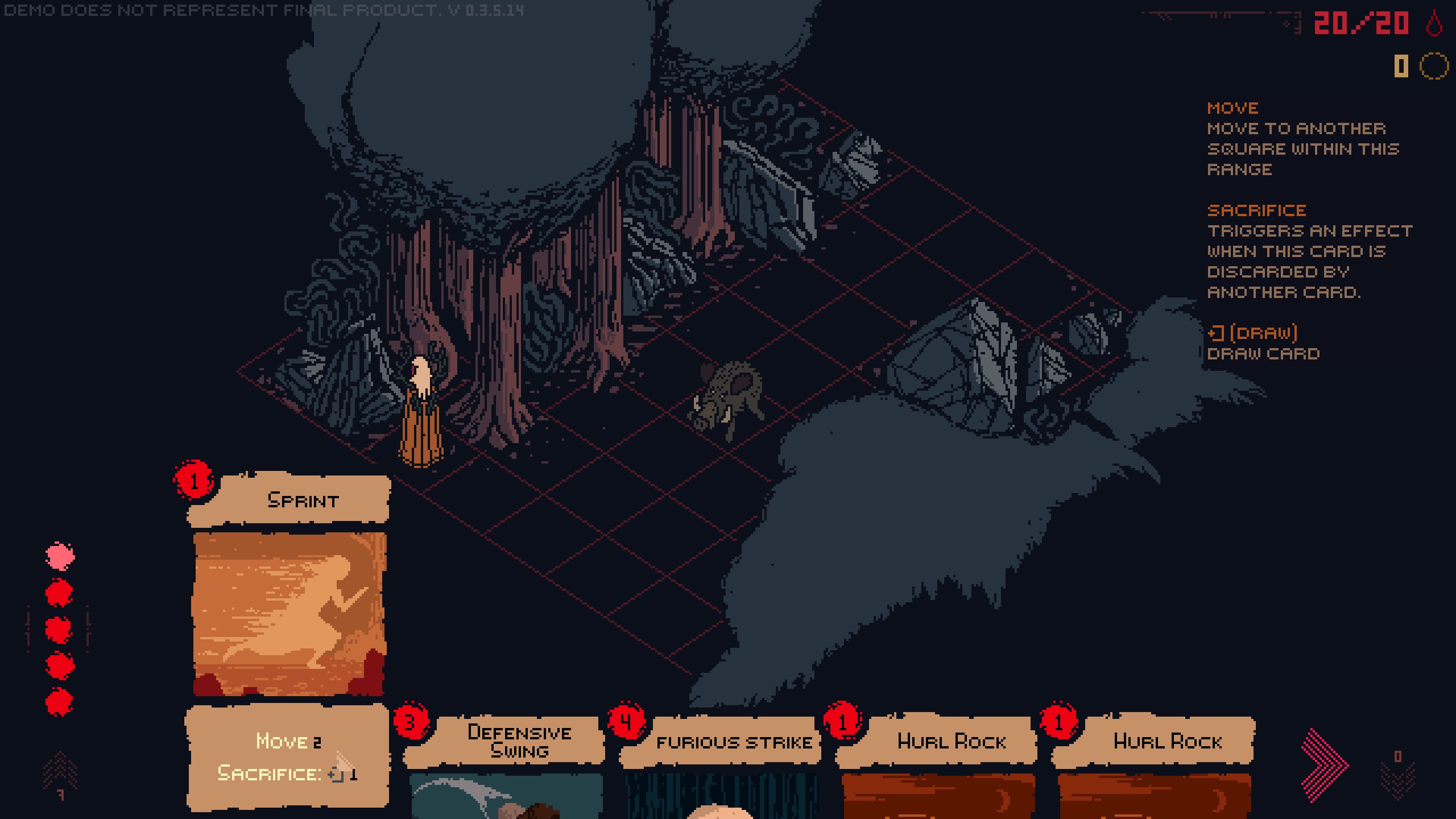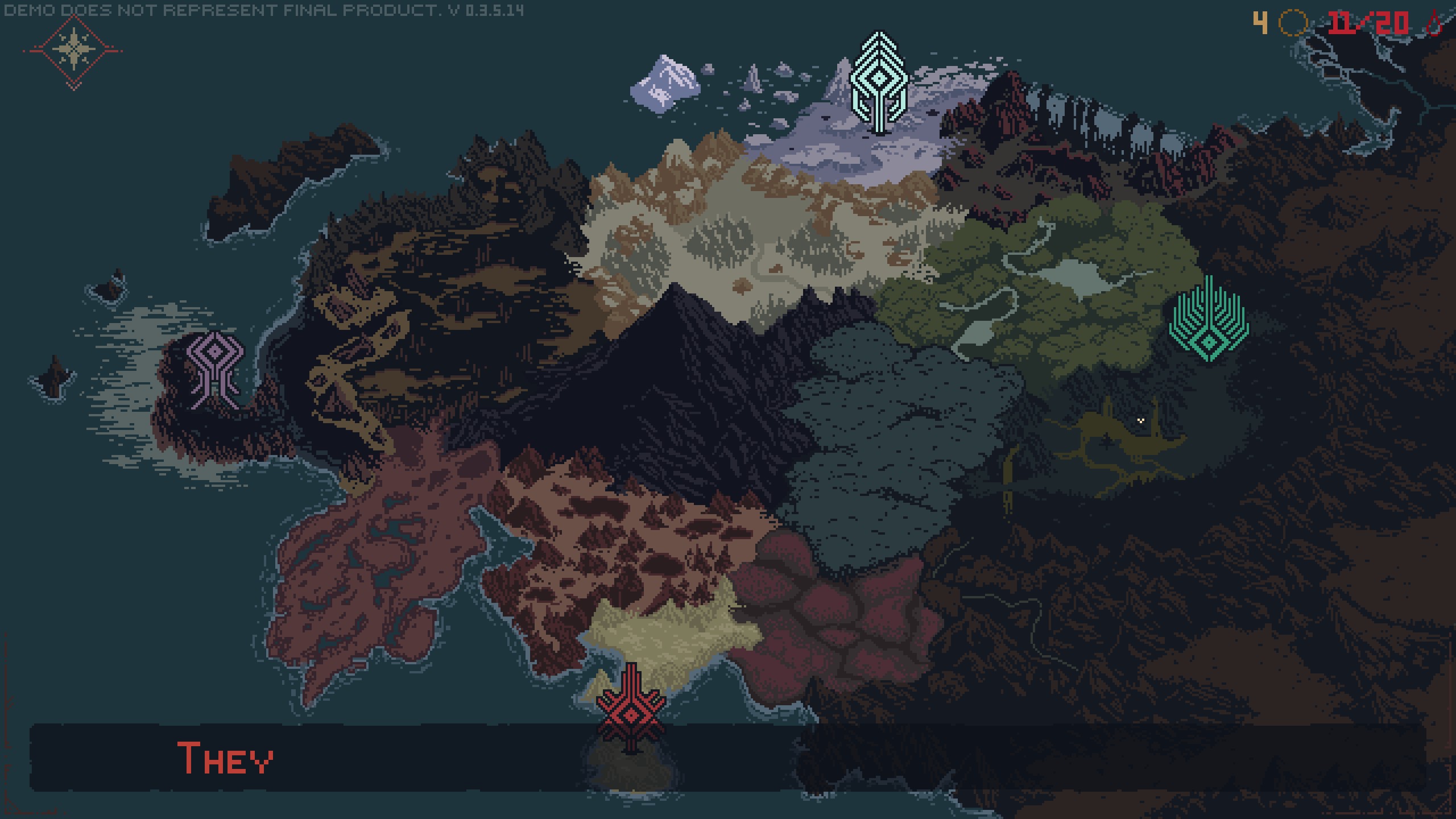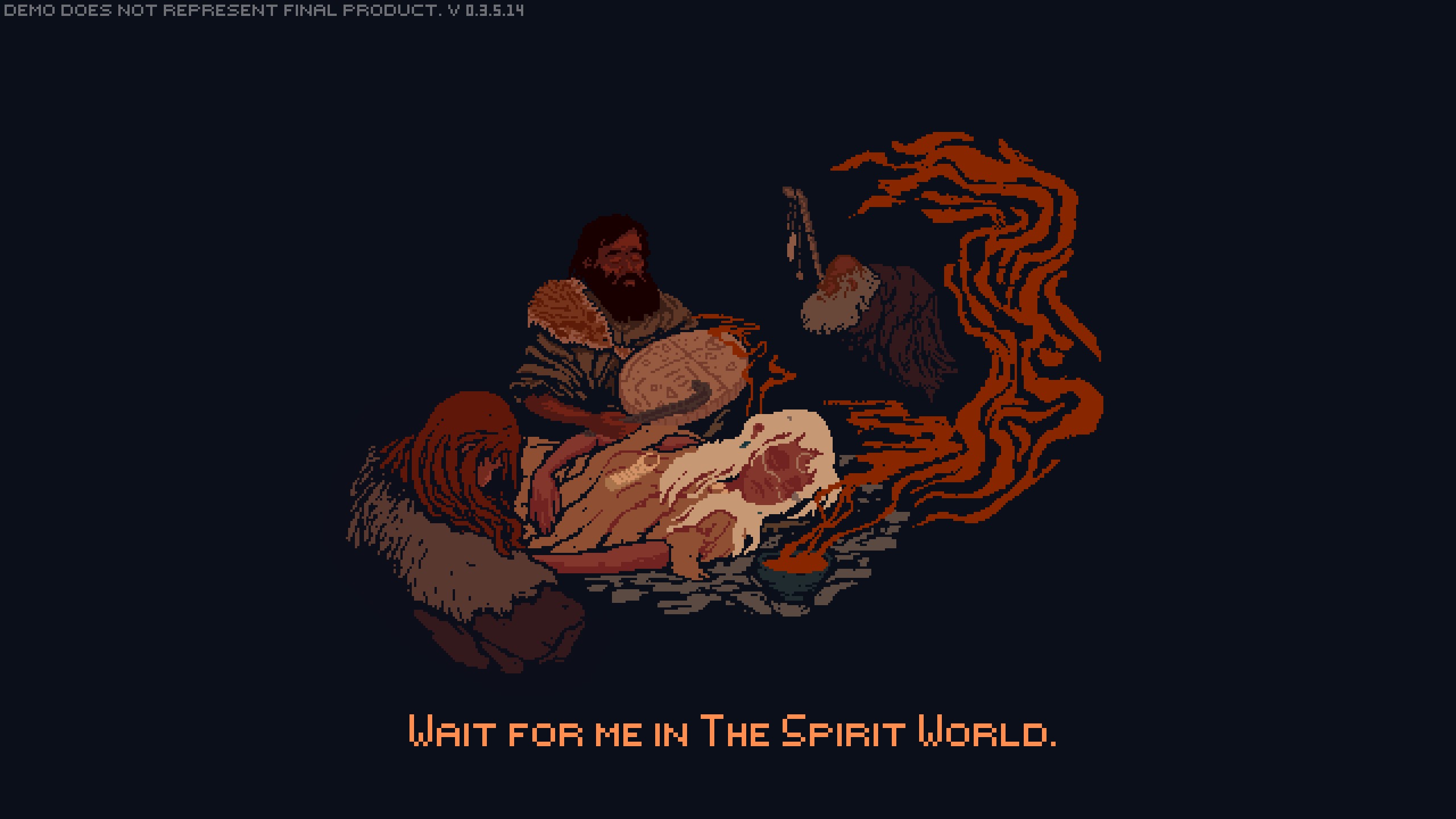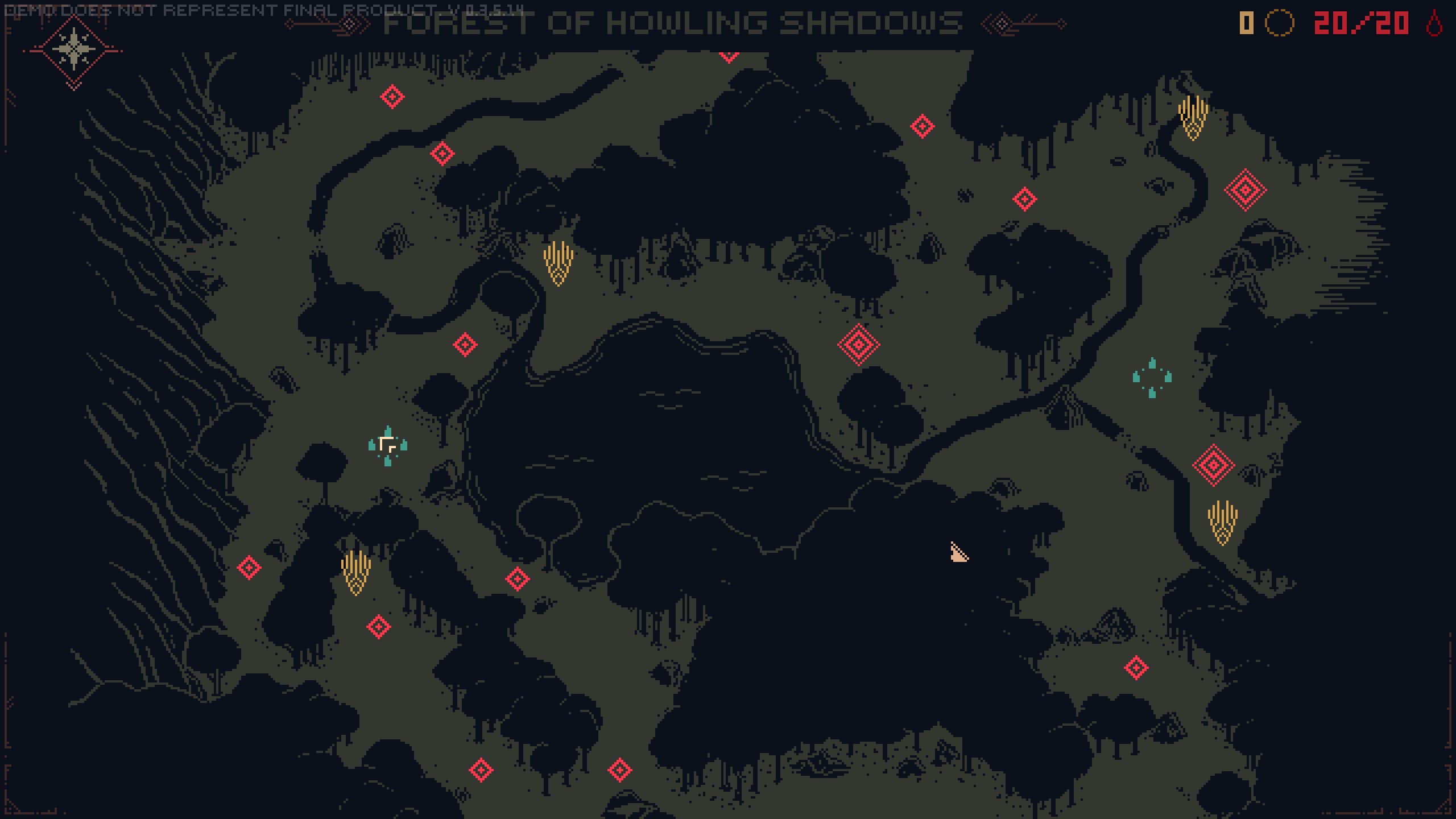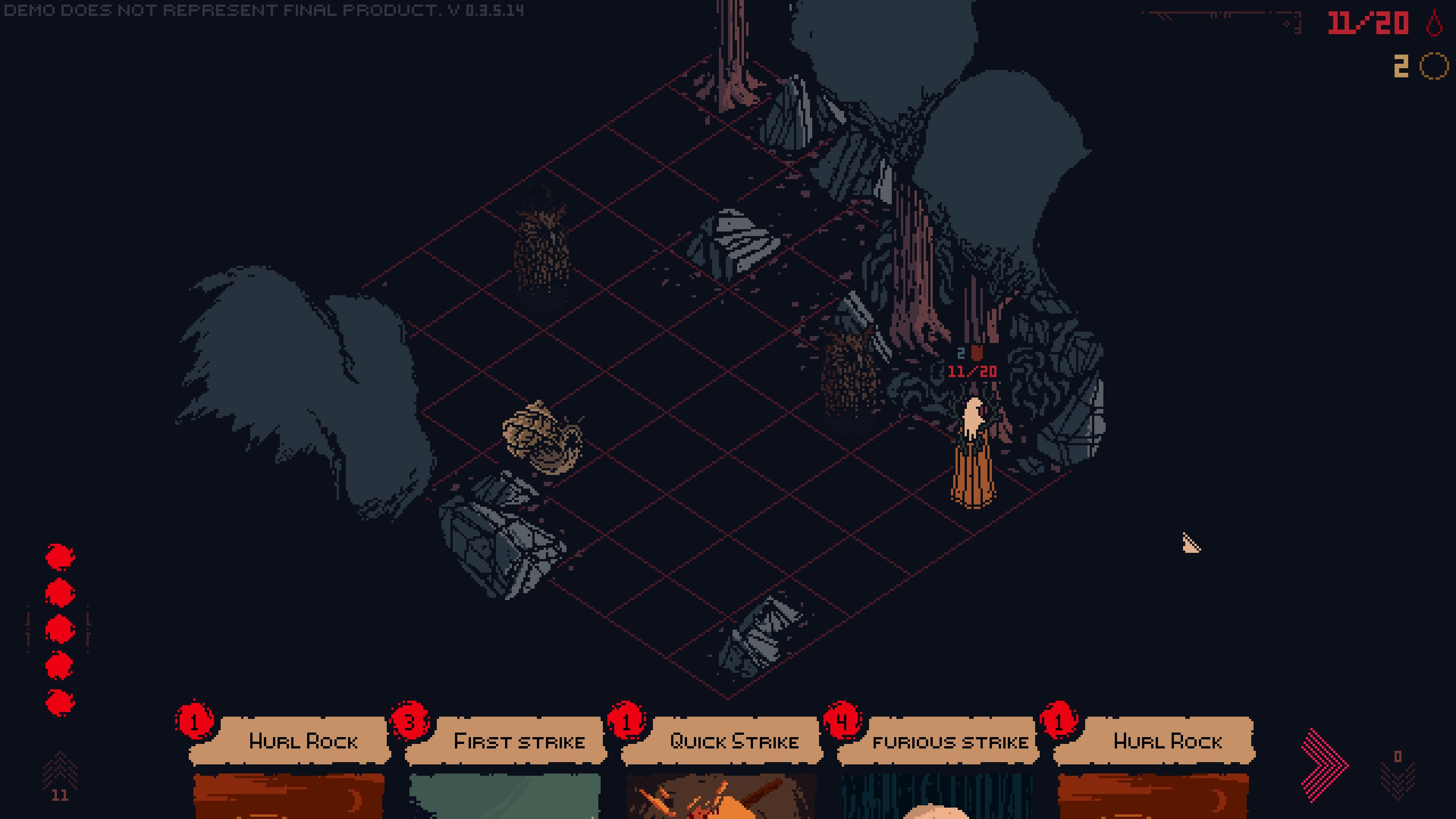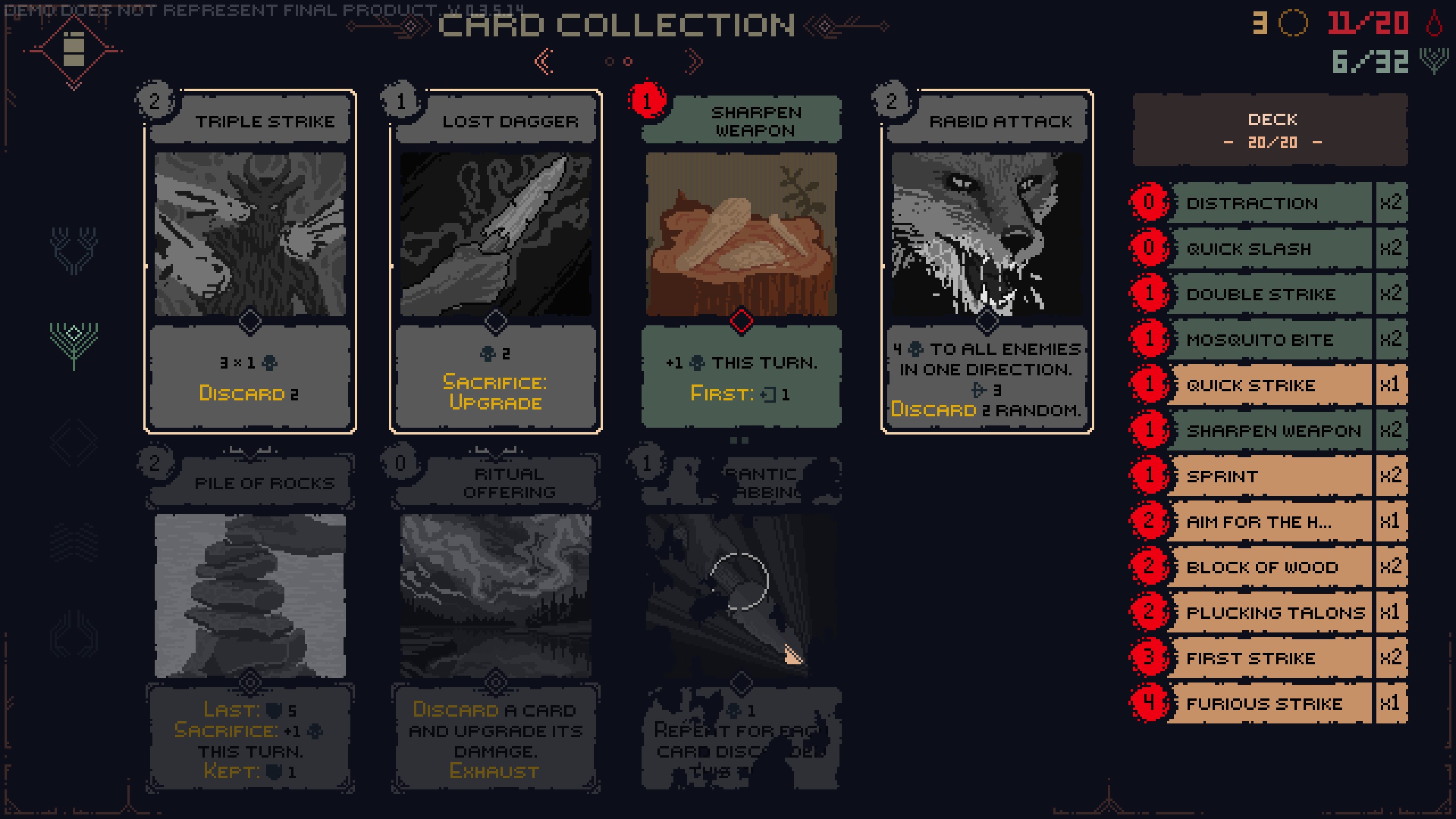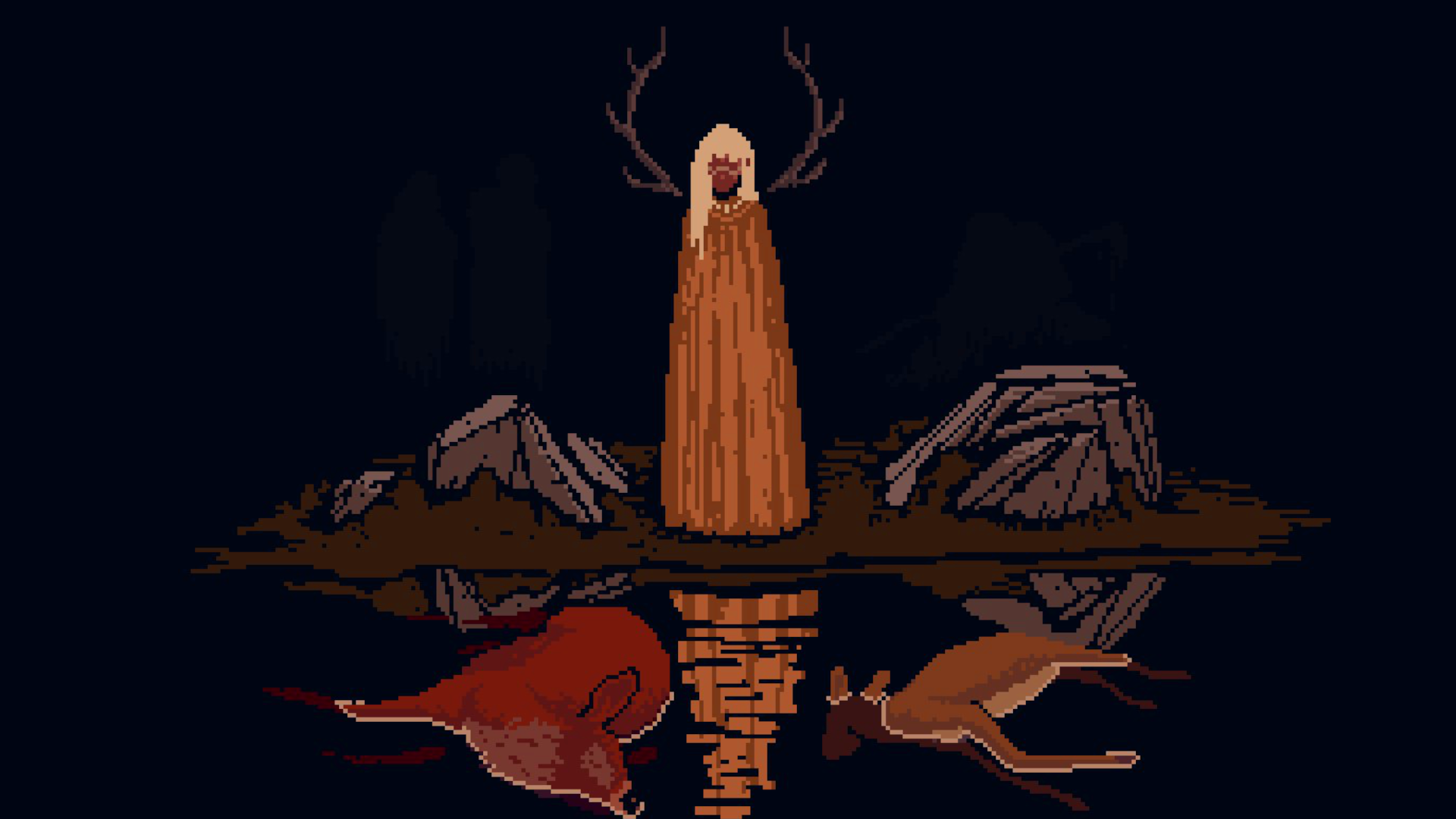
Then my face got smashed, now I'm a believer.
Death Howl’s demo is part of Steam Next fest—which meant, after a glowing recommendation from PCG’s Robin Valentine earlier this year, I was obligated to give it a try. Partially because I get paid a salary for this sort of thing, but also because I heard the words “soulslike deckbuilder” and thought nah, surely not.
I’m happy to report that, yeah, surely yes. Death Howl doesn’t just work, it’s extraordinarily clever in the way it captures a familiar soulslike loop within the framework of a deckbuilder.
Here’s the setup: You, a shaman named Ro, are plunged into a morose and deadly spirit world in a quest to pull your late son back from the jaws of death. You start out flinging pebbles and scrambling for bits of bark, but as soon as you’ve cleared the first area, deadly synergies start to unfurl themselves.
As Robin mentioned back when he played it, half of this power boost comes from knowledge. Death Howl has block cards, but your best defense is to not get hit at all. Movement and cards both use the same resource, making each turn into a question of whether to burn through your mana on offense or keep your distance. It’s fighting game footsies rendered into turn-based strategy, and it works great.
The ideal result of every turn is to force monsters to overextend to just within striking range—each of them has a movement that it can go a little bit beyond, but if it does, it doesn’t get to attack. It’s extremely similar to the routine of dodging, waiting for an opening, and then attacking in your average FromSoftware game.
Each enemy also has a ‘danger zone’ you don’t want to end your turn inside, noted by an exclamation mark above their head: Boars can charge and birds can fire attacks at you in a straight line. Snails are slow-moving, but will tear you to shreds if you get close, and so on. Ending your turn in the wrong spot is a great way to get vivisected.
Other soulslike elements are translated, too. There are your bonfire-style checkpoints, and if you die, you respawn next to the combat you flubbed with your death howls, a resource you use to make cards or obtain skill points, decaying in a square that’s usually inconvenient to reach. As such, conserving your HP in a gauntlet of battles becomes paramount.
But to me, what makes Death Howl immediately enthralling isn’t how it copies FromSoftware elements and puts them in turn-based strategy form: It’s in how it approaches the deckbuilder side of things. If you’ve played Potionomics or Marvel’s Midnight Suns, it’ll feel very familiar.
Rather than trying to cobble together synergies, you’re slowly gaining cards like pieces of gear, then piecing together combos. For me, this involved combining a sharpening stone card, which increased the damage of my attacks, along with double and triple-strike cards—as well as plenty of card draw to feed their hungry discard costs.
Going from desperately pelting boars with rocks to deftly sharpening my spear, dancing towards them, and then carving my name into their pelt with a flurry of blows? It’s deeply satisfying, and it made me want to keep exploring for more tricks to put under my belt.
Rather than fight with each other, the two distinct halves of Death Howl’s elevator pitch are coming together to form a compelling whole. If you’re anything like me, and read the words “soulslike deckbuilder” with a snooty scoff and a raised eyebrow, I encourage you to give its Next Fest demo a try. You’ll be surprised at just how well they pair.
Steam sale dates: When’s the next event?
Epic Store free games: What’s free right now?
Free PC games: The best freebies you can grab
2025 games: This year’s upcoming releases
Free Steam games: No purchase necessary
